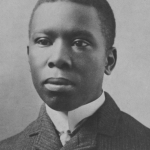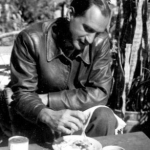The Dance in Jinotega by Grace Paley

In Jinotega women greeted us
with thousands of flowers roses
it was hard to tell the petals
on our faces and arms falling
then embraces and the Spanish language
which is a little like a descent of
petals pink and orange
Suddenly out of the hallway our
Read Poem with thousands of flowers roses
it was hard to tell the petals
on our faces and arms falling
then embraces and the Spanish language
which is a little like a descent of
petals pink and orange
Suddenly out of the hallway our
0
Dancing on the Grave of a Son of a Bitch by Diane Wakoski

Foreword to “Dancing on the Grave of a Son of a Bitch”
This poem is more properly a “dance poem” than a song or chant because the element of repetition is created by movements of language rather than duplicating words and sounds. However, it is in the spirit of ritual recitation that I wrote it/ a performance to drive away bad spirits perhaps.
The story behind the poem is this: a man and woman who have been living together for some time separate. Part of the pain of separation involves possessions which they had shared. They both angrily believe they should have what they want. She asks for some possession and he denies her the right to it. She replies that she gave him money for a possession which he has and therefore should have what she wants now. He replies that she has forgotten that for the number of years they lived together he never charged her rent and if he had she would now owe him $7,000.
She is appalled that he equates their history with a sum of money. She is even more furious to realize that this sum of money represents the entire rent on the apartment and implies that he should not have paid anything at all. She is furious. She kills him mentally. Once and for all she decides she is well rid of this man and that she shouldn’t feel sad at their parting. She decides to prove to herself that she’s glad he’s gone from her life. With joy she will dance on all the bad memories of their life together.
Read Poem This poem is more properly a “dance poem” than a song or chant because the element of repetition is created by movements of language rather than duplicating words and sounds. However, it is in the spirit of ritual recitation that I wrote it/ a performance to drive away bad spirits perhaps.
The story behind the poem is this: a man and woman who have been living together for some time separate. Part of the pain of separation involves possessions which they had shared. They both angrily believe they should have what they want. She asks for some possession and he denies her the right to it. She replies that she gave him money for a possession which he has and therefore should have what she wants now. He replies that she has forgotten that for the number of years they lived together he never charged her rent and if he had she would now owe him $7,000.
She is appalled that he equates their history with a sum of money. She is even more furious to realize that this sum of money represents the entire rent on the apartment and implies that he should not have paid anything at all. She is furious. She kills him mentally. Once and for all she decides she is well rid of this man and that she shouldn’t feel sad at their parting. She decides to prove to herself that she’s glad he’s gone from her life. With joy she will dance on all the bad memories of their life together.
0
The Triumph of Life by Percy Bysshe Shelley

Swift as a spirit hastening to his task
Of glory & of good, the Sun sprang forth
Rejoicing in his splendour, & the mask
Of darkness fell from the awakened Earth.
The smokeless altars of the mountain snows
Flamed above crimson clouds, & at the birth
Of light, the Ocean's orison arose
To which the birds tempered their matin lay,
Read Poem Of glory & of good, the Sun sprang forth
Rejoicing in his splendour, & the mask
Of darkness fell from the awakened Earth.
The smokeless altars of the mountain snows
Flamed above crimson clouds, & at the birth
Of light, the Ocean's orison arose
To which the birds tempered their matin lay,
0
Kumina by Kamau Brathwaite

for DreamChad on the death of her sun Mark - mark this word mark this place + tyme - at Papine Kingston Jamaica - age 29
midnight 28/29 April 2001-1002-0210-0120-0020-0000
rev 29 feb 04
Read Poem midnight 28/29 April 2001-1002-0210-0120-0020-0000
rev 29 feb 04
0
The Crane Dance by Yannis Ritsos

The clew paying out through his fingers, a deftness
that would bring him back to her, its softness the softness
of skin, as if drawn from herself directly, the faint
labial smell, guiding him up and out, as some dampness
on the air might lead a stone-blind man to the light.
Asterios dead for sure, his crumpled horn, his muzzle
thick with blood, so at Delos they stopped,
Theseus and the young Athenians, and stepped
Read Poem that would bring him back to her, its softness the softness
of skin, as if drawn from herself directly, the faint
labial smell, guiding him up and out, as some dampness
on the air might lead a stone-blind man to the light.
Asterios dead for sure, his crumpled horn, his muzzle
thick with blood, so at Delos they stopped,
Theseus and the young Athenians, and stepped
0
Paradise Lost: Book 5 (1674 version) by John Milton

NOw Morn her rosie steps in th' Eastern Clime
Advancing, sow'd the earth with Orient Pearle,
When Adam wak't, so customd, for his sleep
Was Aerie light from pure digestion bred,
And temperat vapors bland, which th' only sound
Of leaves and fuming rills, Aurora's fan,
Lightly dispers'd, and the shrill Matin Song
Of Birds on every bough; so much the more
His wonder was to find unwak'nd Eve
With Tresses discompos'd, and glowing Cheek,
As through unquiet rest: he on his side
Leaning half-rais'd, with looks of cordial Love
Hung over her enamour'd, and beheld
Beautie, which whether waking or asleep,
0
Kora in Hell: Improvisations XIV by William Carlos Williams

XIV
1
The brutal Lord of All will rip us from each other—leave the one to suffer here alone. No need belief in god or hell to postulate that much. The dance: hands touching, leaves touching—eyes looking, clouds rising—lips touching, cheeks touching, arm about . . . Sleep. Heavy head, heavy arm, heavy dream—: Of Ymir’s flesh the earth was made and of his thoughts were all the gloomy clouds created. Oya!
________________
Out of bitterness itself the clear wine of the imagination will be pressed and the dance prosper thereby.
2
To you! whoever you are, wherever you are! (But I know where you are!) There’s Dürer’s “Nemesis” naked on her sphere over the little town by the river—except she’s too old. There’s a dancing burgess by Tenier and Villon’s maitresse—after he’d gone bald and was skin pocked and toothless: she that had him ducked in the sewage drain. Then there’s that miller’s daughter of “buttocks broad and breastes high.” Something of Nietzsche, something of the good Samaritan, something of the devil himself,—can cut a caper of a fashion, my fashion! Hey you, the dance! Squat. leap. Hips to the left. Chin—ha!—sideways! Stand up, stand up ma bonne! you’ll break my backbone. So again!—and so forth till we’re sweat soaked.
________________
Some fools once were listening to a poet reading his poem. It so happened that the words of the thing spoke of gross matters of the everyday world such as are never much hidden from a quick eye. Out of these semblances, and borrowing certain members from fitting masterpieces of antiquity, the poet began piping up his music, simple fellow, thinking to please his listeners. But they getting the whole matter sadly muddled in their minds made such a confused business of listening that not only were they not pleased at the poet’s exertions but no sooner had he done than they burst out against him with violent imprecations.
3
It’s all one. Richard worked years to conquer the descending cadence, idiotic sentimentalist. Ha, for happiness! This tore the dress in ribbons from her maid’s back and not spared the nails either; wild anger spit from her pinched eyes! This is the better part. Or a child under a table to be dragged out coughing and biting, eyes glittering evilly. I’ll have it my way! Nothing is any pleasure but misery and brokenness. THIS is the only up-cadence. This is where the secret rolls over and opens its eyes. Bitter words spoken to a child ripple in morning light! Boredom from a bedroom doorway thrills with anticipation! The complaints of an old man dying piecemeal are starling chirrups. Coughs go singing on springtime paths across a field; corruption picks strawberries and slow warping of the mind, blacking the deadly walls—counted and recounted—rolls in the grass and shouts ecstatically. All is solved! The moaning and dull sobbing of infants sets blood tingling and eyes ablaze to listen. Speed sings in the heels at long nights tossing on coarse sheets with bruning sockets staring into the black. Dance! Sing! Coil and uncoil! Whip yourselves about! Shout the deliverance! An old woman has infected her blossomy grand-daughter with a blood illness that every two weeks drives the mother into hidden songs of agony, the pad-footed mirage of creeping death for music. The face muscles keep pace. Then a darting about the compass in a tarantelle that wears flesh from bones. Here is dancing! The mind in tatters. And so the music wistfully takes the lead. Ay de mí, Juana la Loca, reina de España, esa está tu canta, reina mía!
Read Poem 1
The brutal Lord of All will rip us from each other—leave the one to suffer here alone. No need belief in god or hell to postulate that much. The dance: hands touching, leaves touching—eyes looking, clouds rising—lips touching, cheeks touching, arm about . . . Sleep. Heavy head, heavy arm, heavy dream—: Of Ymir’s flesh the earth was made and of his thoughts were all the gloomy clouds created. Oya!
________________
Out of bitterness itself the clear wine of the imagination will be pressed and the dance prosper thereby.
2
To you! whoever you are, wherever you are! (But I know where you are!) There’s Dürer’s “Nemesis” naked on her sphere over the little town by the river—except she’s too old. There’s a dancing burgess by Tenier and Villon’s maitresse—after he’d gone bald and was skin pocked and toothless: she that had him ducked in the sewage drain. Then there’s that miller’s daughter of “buttocks broad and breastes high.” Something of Nietzsche, something of the good Samaritan, something of the devil himself,—can cut a caper of a fashion, my fashion! Hey you, the dance! Squat. leap. Hips to the left. Chin—ha!—sideways! Stand up, stand up ma bonne! you’ll break my backbone. So again!—and so forth till we’re sweat soaked.
________________
Some fools once were listening to a poet reading his poem. It so happened that the words of the thing spoke of gross matters of the everyday world such as are never much hidden from a quick eye. Out of these semblances, and borrowing certain members from fitting masterpieces of antiquity, the poet began piping up his music, simple fellow, thinking to please his listeners. But they getting the whole matter sadly muddled in their minds made such a confused business of listening that not only were they not pleased at the poet’s exertions but no sooner had he done than they burst out against him with violent imprecations.
3
It’s all one. Richard worked years to conquer the descending cadence, idiotic sentimentalist. Ha, for happiness! This tore the dress in ribbons from her maid’s back and not spared the nails either; wild anger spit from her pinched eyes! This is the better part. Or a child under a table to be dragged out coughing and biting, eyes glittering evilly. I’ll have it my way! Nothing is any pleasure but misery and brokenness. THIS is the only up-cadence. This is where the secret rolls over and opens its eyes. Bitter words spoken to a child ripple in morning light! Boredom from a bedroom doorway thrills with anticipation! The complaints of an old man dying piecemeal are starling chirrups. Coughs go singing on springtime paths across a field; corruption picks strawberries and slow warping of the mind, blacking the deadly walls—counted and recounted—rolls in the grass and shouts ecstatically. All is solved! The moaning and dull sobbing of infants sets blood tingling and eyes ablaze to listen. Speed sings in the heels at long nights tossing on coarse sheets with bruning sockets staring into the black. Dance! Sing! Coil and uncoil! Whip yourselves about! Shout the deliverance! An old woman has infected her blossomy grand-daughter with a blood illness that every two weeks drives the mother into hidden songs of agony, the pad-footed mirage of creeping death for music. The face muscles keep pace. Then a darting about the compass in a tarantelle that wears flesh from bones. Here is dancing! The mind in tatters. And so the music wistfully takes the lead. Ay de mí, Juana la Loca, reina de España, esa está tu canta, reina mía!
0
The Ballad of Reading Gaol by Oscar Wilde

I
He did not wear his scarlet coat,
For blood and wine are red,
And blood and wine were on his hands
When they found him with the dead,
The poor dead woman whom he loved,
And murdered in her bed.
Read Poem He did not wear his scarlet coat,
For blood and wine are red,
And blood and wine were on his hands
When they found him with the dead,
The poor dead woman whom he loved,
And murdered in her bed.
0
From “Odi Barbare” by Geoffrey Hill

xxiv
What is far hence led to the den of making:
Moves unlike wildfire | not so simple-happy
Ploughman hammers ploughshare his durum dentem
Digging the Georgics
Vision loads landscape | lauds Idoto Mater
Bearing up sacrally so graced with bodies
Voids the challenge how far from Igboland great-
Stallioned Argos
Vehemencies minus the ripe arraignment
Clapper this art taken to heart the fiction
What are those harsh cryings astrew the marshes
Weep not to hear them
Read Poem What is far hence led to the den of making:
Moves unlike wildfire | not so simple-happy
Ploughman hammers ploughshare his durum dentem
Digging the Georgics
Vision loads landscape | lauds Idoto Mater
Bearing up sacrally so graced with bodies
Voids the challenge how far from Igboland great-
Stallioned Argos
Vehemencies minus the ripe arraignment
Clapper this art taken to heart the fiction
What are those harsh cryings astrew the marshes
Weep not to hear them
0
The Corn-Stalk Fiddle by Paul Laurence Dunbar

When the corn’s all cut and the bright stalks shine
Like the burnished spears of a field of gold;
When the field-mice rich on the nubbins dine,
And the frost comes white and the wind blows cold;
Then its heigho fellows and hi-diddle-diddle,
For the time is ripe for the corn-stalk fiddle.
And you take a stalk that is straight and long,
With an expert eye to its worthy points,
And you think of the bubbling strains of song
That are bound between its pithy joints—
Then you cut out strings, with a bridge in the middle,
With a corn-stalk bow for a corn-stalk fiddle.
Then the strains that grow as you draw the bow
Read Poem Like the burnished spears of a field of gold;
When the field-mice rich on the nubbins dine,
And the frost comes white and the wind blows cold;
Then its heigho fellows and hi-diddle-diddle,
For the time is ripe for the corn-stalk fiddle.
And you take a stalk that is straight and long,
With an expert eye to its worthy points,
And you think of the bubbling strains of song
That are bound between its pithy joints—
Then you cut out strings, with a bridge in the middle,
With a corn-stalk bow for a corn-stalk fiddle.
Then the strains that grow as you draw the bow
0
Paradise Lost: Book 11 (1674 version) by John Milton

Thus they in lowliest plight repentant stood
Praying, for from the Mercie-seat above
Prevenient Grace descending had remov'd
The stonie from thir hearts, & made new flesh
Regenerate grow instead, that sighs now breath'd
Unutterable, which the Spirit of prayer
Inspir'd, and wing'd for Heav'n with speedier flight
Then loudest Oratorie: yet thir port
Read Poem Praying, for from the Mercie-seat above
Prevenient Grace descending had remov'd
The stonie from thir hearts, & made new flesh
Regenerate grow instead, that sighs now breath'd
Unutterable, which the Spirit of prayer
Inspir'd, and wing'd for Heav'n with speedier flight
Then loudest Oratorie: yet thir port
0
Daffodils by Alicia Ostriker

—for David Lehman
Ten thousand saw I at a glance
Tossing their heads in sprightly dance.
—William Wordsworth
Going to hell so many times tears it
Which explains poetry.
—Jack Spicer
Read Poem Ten thousand saw I at a glance
Tossing their heads in sprightly dance.
—William Wordsworth
Going to hell so many times tears it
Which explains poetry.
—Jack Spicer
0
Dance Piece by Ben Belitt

...at the still point, there the dance is.
—T. S. Eliot The errand into the maze,
Emblem, the heel’s blow upon space,
Read Poem —T. S. Eliot The errand into the maze,
Emblem, the heel’s blow upon space,
0
The Baby's Dance by Ann Taylor

DANCE little baby, dance up high,
Never mind baby, mother is by ;
Crow and caper, caper and crow,
There little baby, there you go ;
Up to the ceiling, down to the ground,
Backwards and forwards, round and round ;
Dance little baby, and mother shall sing,
With the merry coral, ding, ding, ding.
0
Portrait of a Lady by T. S. Eliot

Thou hast committed—
Fornication: but that was in another country,
And besides, the wench is dead.
The Jew of Malta I
Read Poem Fornication: but that was in another country,
And besides, the wench is dead.
The Jew of Malta I
0
Saturday Night by Alicia Ostriker

Music is most sovereign because more than anything
else, rhythm and harmony find their way to the inmost
soul and take strongest hold upon it, bringing with
them and imparting grace.
—Plato, The Republic
The cranes are flying ...
—Chekhov
Read Poem else, rhythm and harmony find their way to the inmost
soul and take strongest hold upon it, bringing with
them and imparting grace.
—Plato, The Republic
The cranes are flying ...
—Chekhov
0
Bedtime Story by Charles Wright

The generator hums like a distant ding an sich.
It's early evening, and time, like the dog it is,
is hungry for food,
And will be fed, don't doubt it, will be fed, my small one.
The forest begins to gather its silences in.
The meadow regroups and hunkers down
for its cleft feet.
Something is wringing the rag of sunlight
Read Poem It's early evening, and time, like the dog it is,
is hungry for food,
And will be fed, don't doubt it, will be fed, my small one.
The forest begins to gather its silences in.
The meadow regroups and hunkers down
for its cleft feet.
Something is wringing the rag of sunlight
0
Symphony of a Mexican Garden by Grace Hazard Conkling

1. THE GARDEN Poco sostenuto in A major
The laving tide of inarticulate air.
Vivace in A major
The iris people dance.
2. THE POOL Allegretto in A minor
Cool-hearted dim familiar of the dove.
3. THE BIRDSPresto in F major
I keep a frequent tryst.
Presto meno assai
The blossom-powdered orangeitree.
Read Poem The laving tide of inarticulate air.
Vivace in A major
The iris people dance.
2. THE POOL Allegretto in A minor
Cool-hearted dim familiar of the dove.
3. THE BIRDSPresto in F major
I keep a frequent tryst.
Presto meno assai
The blossom-powdered orangeitree.
0
I cannot dance, O Lord by Mechthild of Magdeburg

I cannot dance, O Lord,
Unless You lead me.
If You wish me to leap joyfully,
Let me see You dance and sing—
Then I will leap into Love—
And from Love into Knowledge,
And from Knowledge into the Harvest,
The sweetest Fruit beyond human sense.
Read Poem Unless You lead me.
If You wish me to leap joyfully,
Let me see You dance and sing—
Then I will leap into Love—
And from Love into Knowledge,
And from Knowledge into the Harvest,
The sweetest Fruit beyond human sense.
0